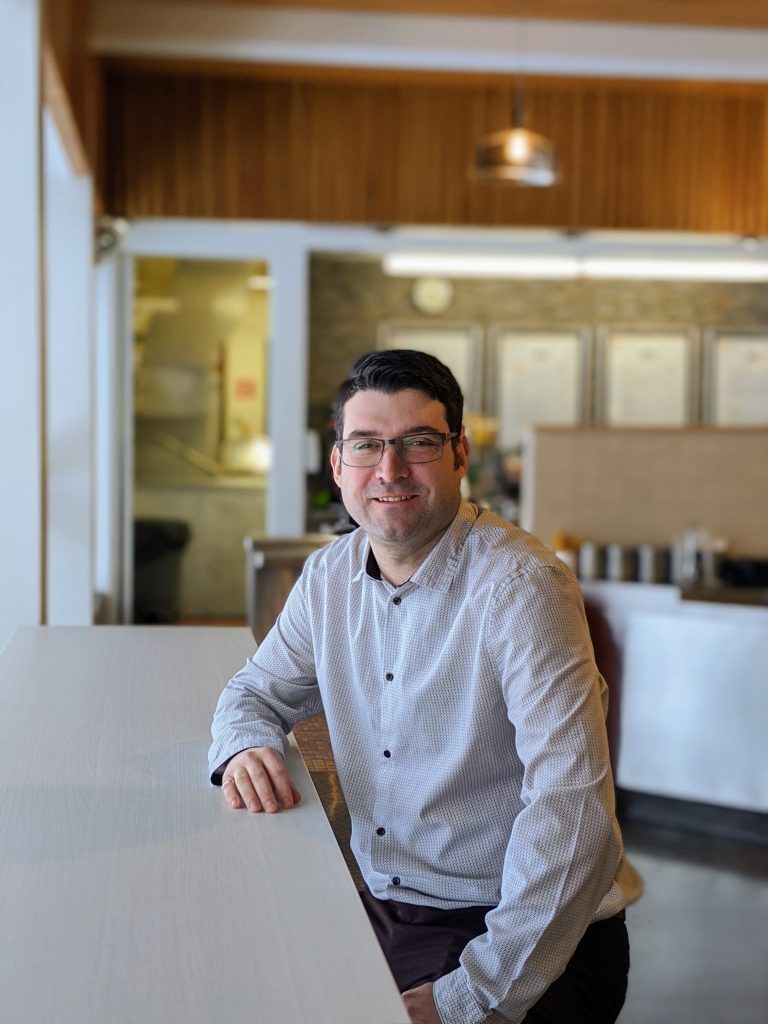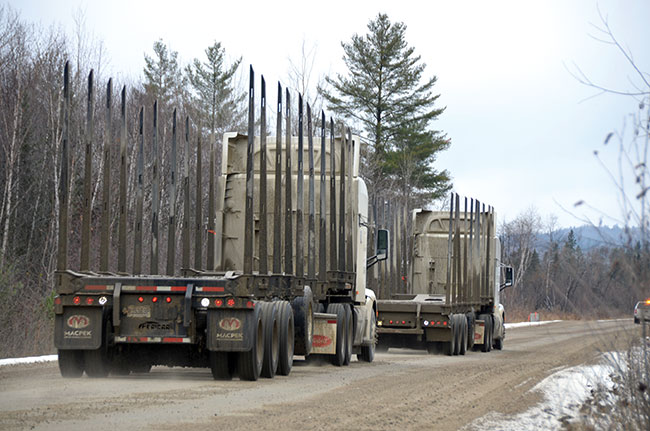
Industry News
News
Harvesting
Final Cut: Forestry of the future – the sustainable revolution
February 25, 2020 By Francis Charette
 Francis Charette is FPInnovations' research lead for forest engineering.
Francis Charette is FPInnovations' research lead for forest engineering. For the past three years, I have led a research program at FPInnovations called Forestry 4.0. Our objective is to build momentum towards sustainability by bringing more automation to forest operations in Canada. I am talking about autonomous trucks, platooning systems and automated harvesting machines.
Forestry 4.0 was developed to create solutions for challenges affecting the forest industry, such as labour shortages, high fibre-supply costs and forest connectivity, as well as to improve our environmental performance. The program is inspired by the concept of Industry 4.0, which is seen as the next industrial revolution. New computer technology such as automation, cyber-physical systems, augmented and virtual reality, artificial intelligence and the Internet of Things will drastically change the forest industry for the better and ensure its competitiveness.
Some call this movement the fourth industrial revolution, but I attended an event called Sweden Canada Innovation Day in Montreal recently, and a speaker said to the audience that we shouldn’t use that term anymore. With climate change recognized by the scientific community as the biggest threat to the next generation, they said we should talk about the “sustainable revolution” instead. This new term resonates with me because it is exactly what I envision when I think about the future of our sector.
The term also accurately describes the Forestry 4.0 program’s overarching goal of using technology to solve operational challenges while also creating a sustainable forest industry. I think the marriage of technology and sustainability is the way of the future for all industries, including the Canadian forest sector. In fact, the sector can be at the forefront of this revolution.

Researchers from FPInnovations, Auburn University and Transport Canada conducted log truck platooning tests in Quebec in 2018.
The forest industry, through forest intensification, is among the few industries that can grow while reducing its GHG emissions and remain sustainable. Forests are part of the carbon sink and when we harvest trees and transform them into housing or products with a long service life, we capture and sequester carbon dioxide. In the meantime, new trees grow to replace the harvested ones and the carbon capture and storage cycle begins again.
The greatest impact can be achieved when we substitute non-renewable-based products that come with a high GHG emissions price tag with renewable and sustainable wood-based products. Wood products have the attributes required to be an important part of a circular economy where by-products can become ingredients for other processes.
The challenges of this revolution are many and that’s why we are partnering with leading organizations around the world to accelerate the pace of development. Late last year, FPInnovations signed a memorandum of understanding with the Swedish forest research institute Skogforsk to promote the international exchange of research on automated harvesting.
We are equally proud of our collaboration with academia, including the Natural Sciences and Engineering Research Council of Canada’s Canadian Robotic Network, Université Laval’s FORAC research consortium, the harvesting training centre Centre de formation professionnelle de Mont-Laurier, and Auburn University in Alabama. We also have robust collaborations with the private sector, such as with Rigid Robotics, Ambra Solutions, LlamaZOO, Iotatel, ASI, Lim Geomatics, Forsite and Scaffold AI. It is important to create an ecosystem of like-minded organizations that can implement and support this revolution in collaboration with OEMs. The competition with other sectors to attract high-tech companies is strong, but I think the forest industry offers a lot of potential for tech companies because only a few currently occupy the space and the growth potential is enormous.
The future for forestry is exciting and bright. We now have the opportunity to use leading-edge technology to increase the economic viability of the entire supply chain sustainably, which will complement the know-how we already have to manage our forests and the life-cycle assessment of wood products. The forest sector is in a good position to make the “sustainable revolution” a reality. Let’s rise to the challenge, transform the sector, contribute to a greener Canadian economy and share the collective pride of building a sustainable future for everyone.
Francis Charette is a research lead in forest engineering for FPInnovations. www.fpinnovations.ca.
Print this page